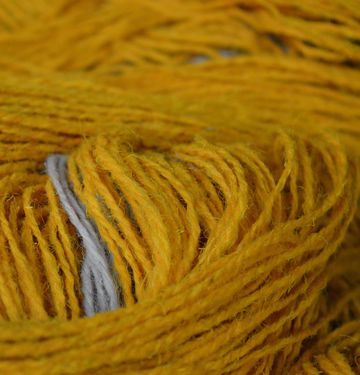Why Wool is Best
7th February 2019
The wool from 1 in 9 British Sheep ends up in a Brintons carpet - Source British Wool
Wool carpets are known for their quality because wool is naturally tough, giving you luxury that lasts for longer.
British Wool tells us the science behind this amazing fibre.
It might be pouring with rain, snowing, windy or beautifully sunny – whatever the weather, you’ll always see sheep grazing happily in the British countryside. And that’s thanks to their clever wool coats, which protect them in all weathers!
Wool is an amazing natural fibre. Composed of proteins, its complexity provides many features and benefits that man-made fibres could never replicate, offering complete flexibility and superior performance characteristics.
It’s fire retardant. Wool is difficult to ignite due to high water and nitrogen content. If you hold a match to wool, it will smoulder and then go out. It doesn’t melt, drip or give out poisonous fumes. And this means it’s considered one of the safest fibres for flooring and fabrics – the perfect choice for the family home.

Wool is an incredibly complex natural fibre, which means natural attributes that plastic fibres just can’t match. Wool has a left and right handed helix at its core, which works likes a spring, meaning it can continuously resist pressure and flattening. It can be bent many thousands of times and still spring back! And this is why British wool is such a great fibre in carpets.
Wool’s natural oils and scaled structure trap dust and dirt at the top layers of the fibre, so it couldn’t be easier to keep clean with a quick vacuum around! The scales on wool are another amazing feature - they cause liquids to bead up and stay on the surface, helping to keep wool stain free. So if you’re quick, that red wine won’t leave a single mark!
Wool is grown naturally on sheep. They live on and from the land, roaming freely in the countryside, and re-grow their fleece every year. This is in direct contrast to synthetic fibres, which need oil and refineries to be produced. Sheep grow wool continuously, and can be shorn every 9-12 months, meaning wool is rapidly and readily available. As long as there is grass for sheep to eat, wool can be produced.
Wool contributes to healthier air indoors by helping to absorb pollutants, like VOC’s, from the air. Allergens, such as dust, are also trapped in the outer scales at the top layer of the fibre, so instead of floating around and aggravating allergies, they can simply be vacuumed away.
Interested in finding out more?
Follow @BritishWool on Twitter, Facebook and Instagram.

